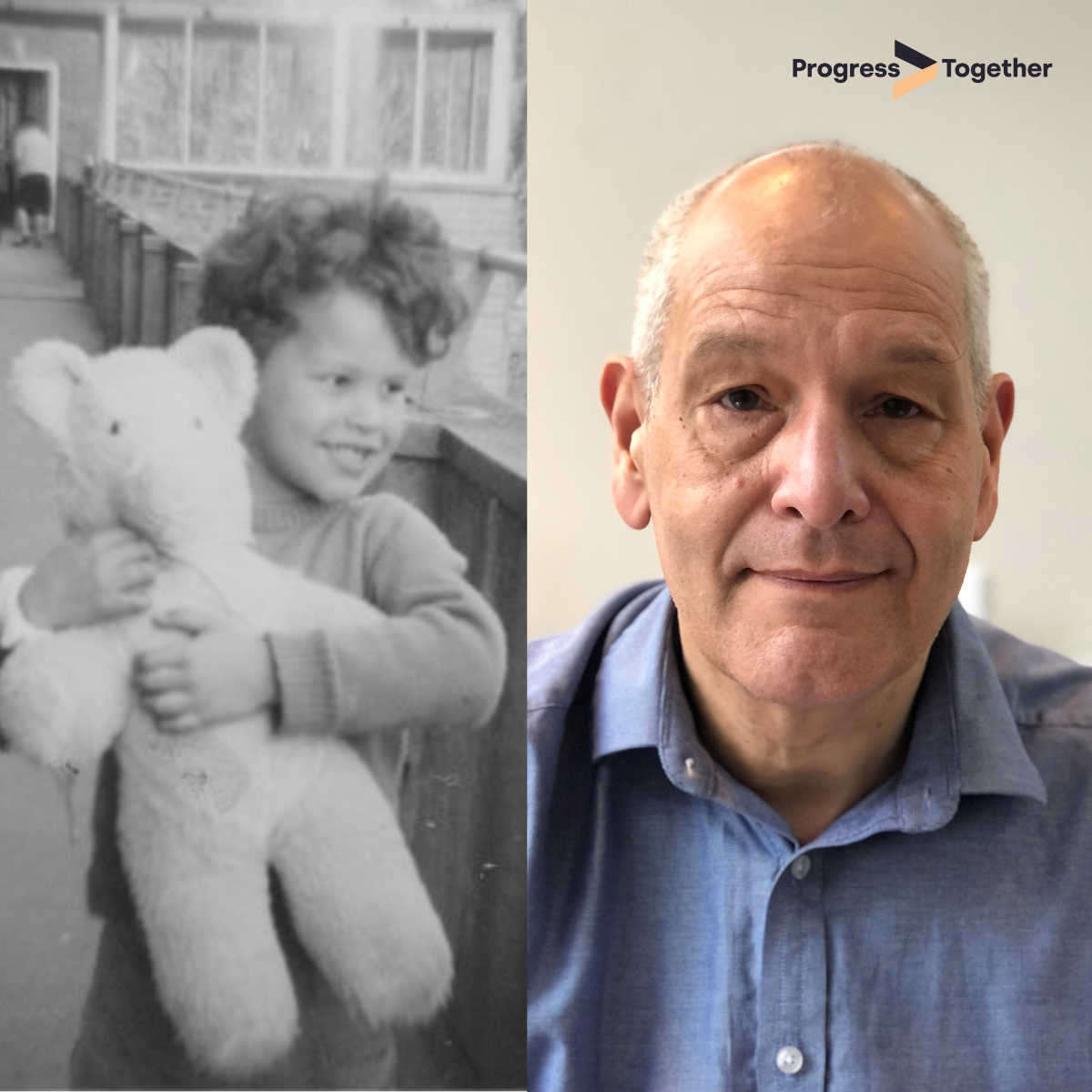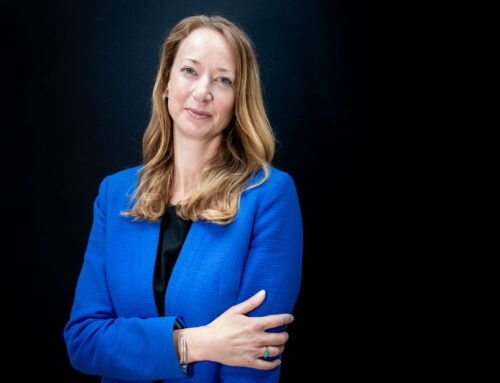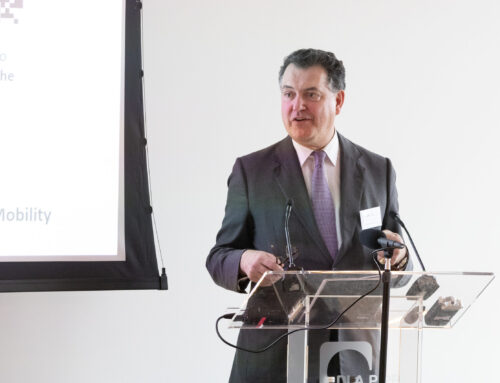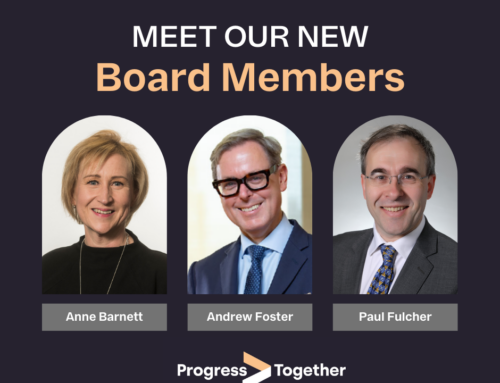Raised on a London council estate by a former circus performer and a jobbing musician, Andy Boucher has a unique perspective on life.
Despite his ‘pretty chaotic’ start to life, he eventually rose through the ranks to become a Partner in a globally renowned firm. Amongst his roles, Andy is now Vice Chair and Honorary Secretary of charity Making the Leap, giving people from similar backgrounds a chance to start and progress their careers. Making the Leap runs the annual Social Mobility Awards and is an official supporter of Progress Together. Andy is also co-founder of the Employers’ Social Mobility Alliance (ESMA), facilitating better collaboration and engagement in the broader business community on social mobility issues.
“An ‘old school network’ seemed to prevail”
As the youngest of four children born to young parents, Andy’s childhood was marred by his parents’ troubled and erratic lifestyle.
He said: “Growing up, I didn’t have any role models around me. My parents were lovely but were just lost souls tied up in their own issues. They were kids having kids. They had no clue about education and careers.
“Our place was a tip and I couldn’t have friends round so I took myself off into my own little world. I wanted to get out as I couldn’t help thinking that there was more to life. I couldn’t physically travel, but I could travel with my mind, so education became my escape route. I pieced together role models from books and films.”
Andy managed to secure a place at a grammar school and his strong A-level results led him to study maths at Imperial College London.
After a brief stint as a maths teacher, he became an accountant but struggled with the social expectations that he felt came naturally to is colleagues from more privileged backgrounds.
He said: “People were talking about their skiing holidays and other things I had no experienced of. I felt like a fish out of water. I didn’t belong.
“At the time it felt like an ‘old school network’ environment seemed to prevail. People had parents (normally fathers) or close relatives connected to the firm. The doors were very much open for them and they all seemed to be massively confident”.
“I wasn’t thinking about success, just about survival”
“I did what I’ve always done and still do – I worked hard. I wasn’t thinking about success, just about survival. I felt that they had the right to be there and I did not. However, I recognise that where there was bias, it was often unconscious rather than deliberately malicious.”
Andy’s early career experience shaped his approach to leadership.
At the age of 42, Andy became a Partner at PwC. He made a conscious decision not to let the insecurities which had carried though his career affect his approach to leadership.
He said: “I felt I always had to adopt social camouflage, and that took a lot of energy. I didn’t want to be judged because of my background, I wanted to be recognised for what I could do. So although I am proud of my background, I wouldn’t, for example, talk about my heritage”.
“It used to be painful going to formal events. I didn’t know what to talk about, how to act, what to say and what not to say. I thought everyone there was better than me. In the workplace, there was bias towards people whose face seemed to fit.
“I realised that I was putting a lot of effort into being someone I wasn’t, and that didn’t make me my most productive or engaging.
“When I decided to be myself things got a lot better. I didn’t feel the need to prove myself every time I walked in the room.”
“It’s important to have people from socio-economically disadvantaged backgrounds in leadership”
Andy is passionate that everyone should have the opportunity to fulfil their potential. For the last 13 years he has worked across and with a huge range of organisations to bring that passion to life. He said: “In my experience, businesses that get it are not just doing the right thing, but are better, more robust businesses. It creates a competitive edge for those businesses.”
Andy believes that companies are now doing more to address issues around socio-economic diversity but that there’s still a long way to go.
He said: “It’s important to have people from socio-economically disadvantaged backgrounds in leadership so they can use their lived experience to bring about effective change, so people feel more included and valued”.
“People who have made it despite rather than because are likely to have a lot more resilience, creativity, agility, passion and motivation. Once you make that demographic shift, there you have the leaders of the future.”
What ‘good’ looks like
Andy has shared his thoughts on what ‘good’ looks like in an organisation, whichever stage of the socio-economic diversity journey they’re at:
- Recognise the benefits of having access to a wider talent pool. Being different is just that – different – and not worse or inferior. In fact, the evidence is that people who have made it despite rather than because are likely to be more resilient, creative, agile and motivated
- Understand and address the cultural issues that create barriers to entry and progression
- Assess and be seen to assess people based on ability rather than other factors
- Positively embrace difference, rather than impose a set of behaviours based on cultural biases
- Have leadership that is engaged, accountable and vocal on the issue of socio-economic inclusion. Critically, this involves setting contextual goals and celebrating role models in leadership positions
Making the Leap is an official supporter of Progress Together.
Progress Together aims to level the playing field to create a financial services sector in the UK in which everyone working in it, from all socioeconomic backgrounds, is both enabled and has the opportunity to achieve their full potential.
UK financial services firms can find out about becoming a member here




